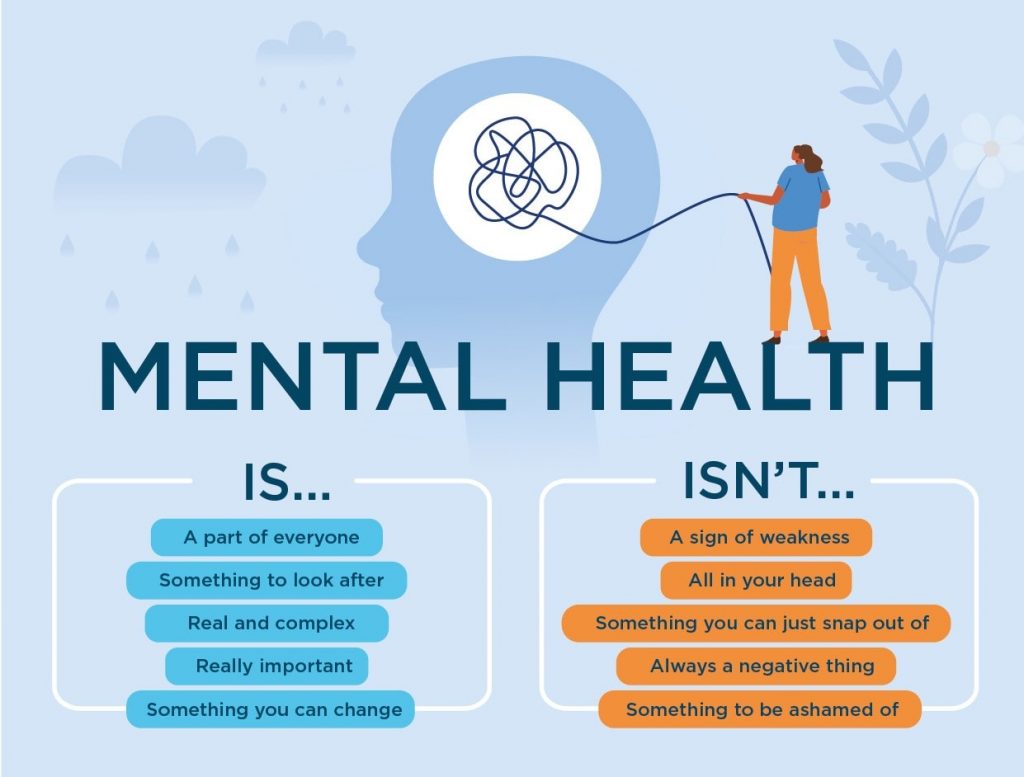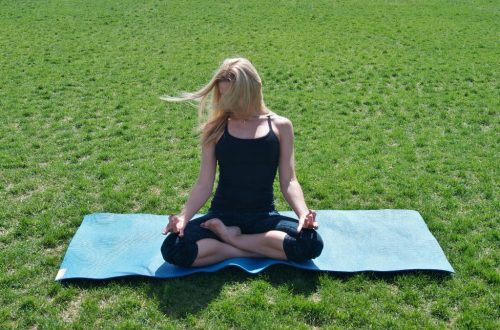
Best Hobby activities to revitalize your Mental Health
Best Hobby activities to revitalize your Mental Health
 Do you recall the sensation of peddling with pals in a park or sketching on notepads? What about the unparalleled pleasure of keeping a daily journal? Maybe you spent hours cutting out your favorite cartoon characters from a magazine or perfecting your dance routines.
Do you recall the sensation of peddling with pals in a park or sketching on notepads? What about the unparalleled pleasure of keeping a daily journal? Maybe you spent hours cutting out your favorite cartoon characters from a magazine or perfecting your dance routines.
These nostalgic recollections of our childhoods packed with hobbies make us question what became of those pastimes as we got older. Why did we stop making time for activities that we enjoyed?
Best Hobby activities to revitalize your Mental Health
We acknowledge that you are perpetually occupied. It’s acceptable if having a hobby wasn’t your top priority during the past several years; you’ve had your hands full. Who has time to read and engage in the most beneficial hobbies for mental health in a world of tight deadlines and crowded schedules?
Work, school, and personal relationships may leave you with little to no time to focus on your mental health. You may eventually feel overwhelmed and overburdened by your routine.
However, our bodies were not designed to be constantly exposed to these stressful environments.
To put it more precisely, one cannot work continuously without experiencing negative consequences afterwards. The solution? Establish a pattern of work and rest.
The perfectionist within us disagrees. The pressure exerted by the hustling culture makes us feel bad for engaging in activities that do not advance our aims. The concept of being “always on” or constantly doing something for profit has caused us to abandon our most valued pastimes.
Best Hobby activities to revitalize your Mental Health
Never before has it been more necessary to take care of our mental health as well as our physical health.
And this is precisely why you should incorporate enjoyable and leisure activities into your everyday routine.
Give something new a chance, such as pottery or journaling. Create some sketches or a new poem. Consider learning a new instrument or joining a cycling club. Why? Because each of these pastimes has superpowers that stimulate the mind.
Let’s delve deeper into the connection between hobbies and mental wellness.
First, however, let’s clear the air. What Does the Term ‘Hobby’ Mean?
The Merriam-Webster dictionary defines ‘hobby’ as an activity undertaken outside of one’s normal work for relaxation. A hobby is the intersection between activity and interest. If you are interested in cooking, for instance, check out several recipes. Thus, a hobby is created.
Hobbies provide equilibrium in one’s life. Consider the activities that provide you delight and pleasure, such as knitting, photography, and gardening. You might follow a different full-time vocation, but hobbies, in some sense, pursue you.
Why are hobbies beneficial to mental health?
According to research, developing and maintaining a hobby is beneficial to one’s health. According to research, hobbies are related with numerous health benefits. Among them are:
Low blood pressure, body mass index, stress hormone levels, etc.
According to a study conducted in 2020, hobbies reduce depressive symptoms. They lessen the likelihood of experiencing depression by a significant 30%.
Therefore, if you do not engage in activities for mental health, you are missing out on numerous health benefits. Here are the mental health advantages of hobbies:
Neuroplasticity is enhanced by habits.
The concept of neuroplasticity dates back more than a century. It argues that you have the ability to alter the structures of your brain by your habits and decisions.
Therefore, when you begin to form a new habit, you form new brain connections. The human brain consists of a vast network. While pursuing new pastimes, you create new connections and references. It helps you respond differently to situations. In addition, it permits the brain to eliminate unwanted habits.
Habits Bolster Self-Esteem
The more consistently you focus on an activity, the more likely you are to improve. Thus, hobbies contribute to the development of self-confidence and self-esteem. According to a study, women who pursued their passions were less susceptible to self-objectification.
Habits teach us that failing is OK.
You have all heard it before, but repetition is necessary. Learning to accept setbacks is beneficial. There are fewer risks connected with a new pastime. Therefore, it affords you the opportunity to test the waters. Failure in a recreational activity may help you overcome your fear of failure.
Habits Help Combat Stress
Are you experiencing greater stress these days? However, you are not alone. 55% of Americans reported of daytime stress in 2018. This quantity ranks fourth in the globe.
There is a great deal of negativity surrounding us. To de-stress, engage in your favorite pastime. As the saying goes, a daily practice keeps stress at bay. That is precisely what science believes. According to scientific research, when you engage in an activity that you enjoy, you are more likely to experience a high mood, a stable heartbeat, and less tension.
Habits Motivate ‘Flow’
Some pastimes are associated with creating the conscious state known as ‘flow.’ Flow is the state of energetic concentration. It is the point at which one is completely engaged in an activity.
Getting into flow has numerous advantages, including as positive emotions, emotional stability, and a boost in creativity.
Activities To Develop For Mental Health And Well-being
Your choice of pastimes is your own. The only need is that it improves your mood and makes you happier. However, similar to other aspects of life, you may need to experiment with many hobbies before finding the ideal one.
Read on to discover the proven benefits of the five best hobbies for mental health to make your decision easier.
Master Musical Instruments
One of the best activities for mental health on our list is learning or relearn an instrument.
Did you aware that music has incredible effects on the brain? That’s correct! The mental impacts of music extend beyond mere mood boosting.
The ability to make music can boost the neuroplasticity of the brain. Researchers have detected anatomical changes in the brains of individuals who play an instrument. The corpus callosum is the most prominent distinction between the two species. It is a collection of fibers that connect the two hemispheres of the brain. This region is significantly more prevalent among those who consistently play at least one instrument.
In addition, the areas of the brain that control movement and hearing are larger in keyboard players. It makes you want to grab a keyboard immediately, doesn’t it?
Recording A Journal
Regularly keeping a journal entails more than simply recording your daily activities. It is a great method for relieving stress. Writing down one’s thoughts provides more clarity and perspective.
Writing in a journal can reduce anxiety and despair. Worrisome individuals frequently experience excessive worry and anxious thoughts. Writing down these thoughts in a notebook assists for the discovery of their solutions.
In a 2013 study conducted by HHS Public Access, participants who kept a journal were found to have fewer depressive symptoms than those who did not.
Reading, Reading, & Reading
We cannot overstate the value of reading books. Books are not merely a form of entertainment. Their remarks contain great lessons concealed inside them. You may join a book group or read independently. However, ensure that you read a few pages daily.
Reading enhances the brain’s neuronal connections. Reading alleviates the signs and symptoms of depression. Research indicates that reading about fictional characters improves people’s emotional comprehension. Now you see why shedding buckets over the death of your favorite novel character is not wholly pointless.
Calming Through Calligraphy
We cannot overstate the value of reading books. Books are not merely a form of entertainment. Their remarks contain great lessons concealed inside them. You may join a book group or read independently. However, ensure that you read a few pages daily.
Reading enhances the brain’s neuronal connections. Reading alleviates the signs and symptoms of depression. Research indicates that reading about fictional characters improves people’s emotional comprehension. Now you see why shedding buckets over the death of your favorite novel character is not wholly pointless.
Calming Through Calligraphy
Chess is commonly misunderstood as a game for gifted individuals. This has generated the impression that only geniuses can play the game well. In actuality, chess is one of the most beneficial pastimes for mental wellness.
Chess improves cognitive function. Brain cells begin to perish in the absence of stimulus. This is a perfect illustration of the adage “use it or lose it.”
Chess helps patients with ADHD improve their concentration. It improves cognitive capacities. Additionally, the game is related with improved memory. If you want to improve your memory, you could try playing chess.
Best Hobby activities to revitalize your Mental Health
Conclusion
Hobbies are intended to be relaxing. They should not become another item on your list of responsibilities. Instead, they should be activities in which you willingly and deliberately invest time.
We live in an age where work hours are decreasing and the digital world is vying for our attention. Therefore, it is essential to take responsibility of the 1440 minutes in a day. If that seems overwhelming, just assume responsibility for at least 20% of this.
Download the hobbytwin app and tell a friend for instant hobby matching:
For iPhone/iPad&iPod:









